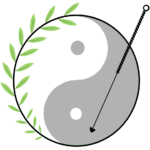 Researchers from the Kuang Tien General Hospital, in Taiwan believe it’s an option.
Researchers from the Kuang Tien General Hospital, in Taiwan believe it’s an option.
And a reader agrees.
First, the details.
- 77 consecutive carpel tunnel syndrome patients confirmed by nerve conduction studies were enrolled in the study.
- The nerve conduction study stimulates specific nerves and records their ability to send the impulse to the muscle. The study can show where there is a blockage of the nerve pathway.
- The patients were randomly divided into 2 treatment groups.
- The corticosteroid prednisolone 20 mg daily for 2 weeks followed by 2 weeks of prednisolone 10 mg daily.
- Acupuncture administered in 8 sessions over 4 weeks.
- A validated standard questionnaire as a subjective measurement was used to rate the 5 major symptoms (pain, numbness, paresthesia [tingling], weakness/clumsiness, and nocturnal awakening) on a scale from 0 (no symptoms) to 10 (very severe).
- Patients completed standard questionnaires at the start and 2 and 4 weeks later.
- The total score in each category was termed the global symptom score.
And, the results.
- Global symptom score showed significant improvement in both groups at weeks 2 and 4, with no statistical significance between groups.
- Of the 5 main symptoms scores, only nocturnal awakening, showed a significant decrease in acupuncture vs steroids at week 4.
- Patients with acupuncture had a significant decrease in distal motor latency compared with the steroid group at week 4.
- Distal motor latency is the time between the stimulus and the onset of the muscle action
- Acupuncture was well tolerated with minimal adverse effects.
The bottom line?
The authors concluded, “Short-term acupuncture treatment is as effective as short-term low-dose prednisolone for mild-to-moderate CTS.”
Aside from this study there’s limited evidence supporting a role for acupuncture in the treatment of carpal tunnel syndrome. A review in 2002 by researchers at Vrije Universiteit Medical Centre, Amsterdam, in The Netherlands concluded that “laser-acupuncture seem to be ineffective in providing short-term symptom relief.” And there was “conflicting evidence for the efficacy of… oral steroids.”
The University of Maryland website has an overview of treatment options.
5/8/10 11:48 JR